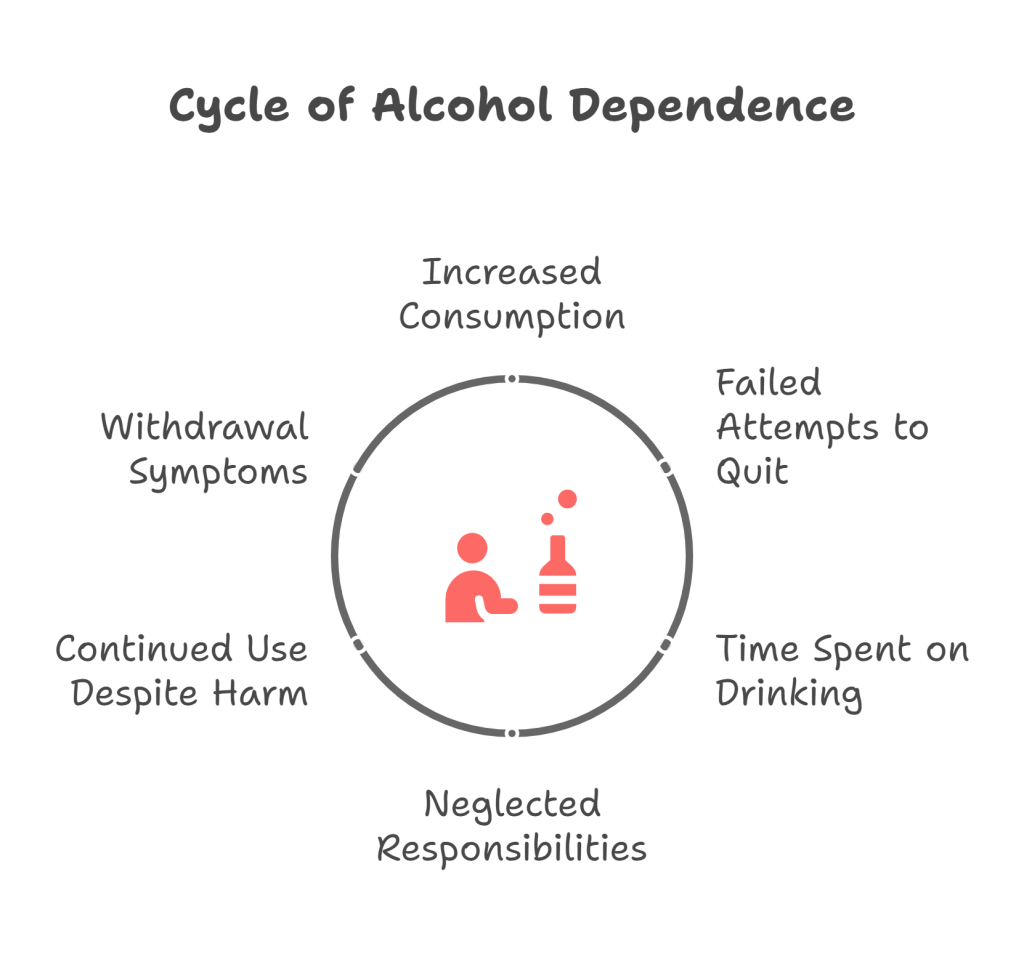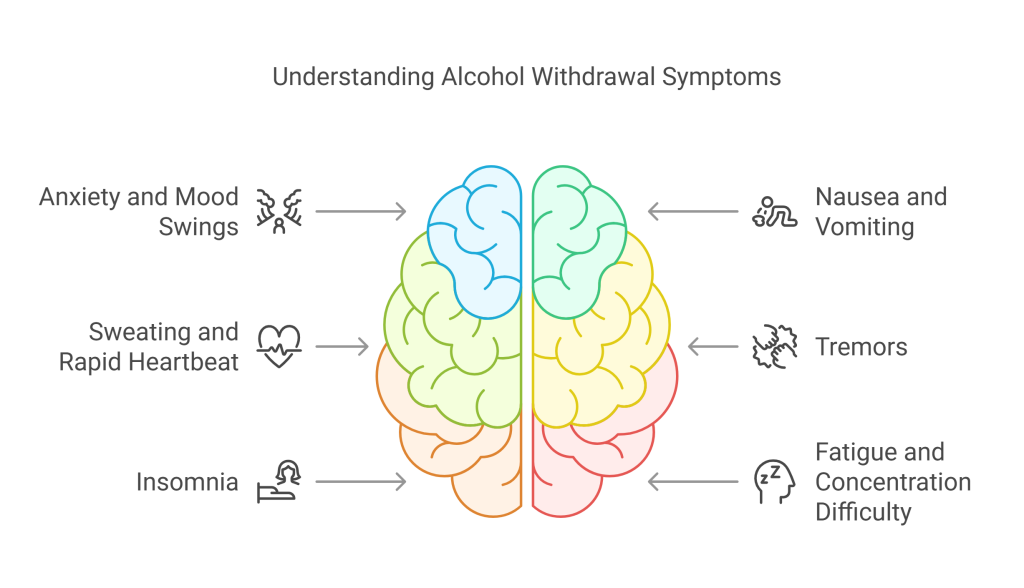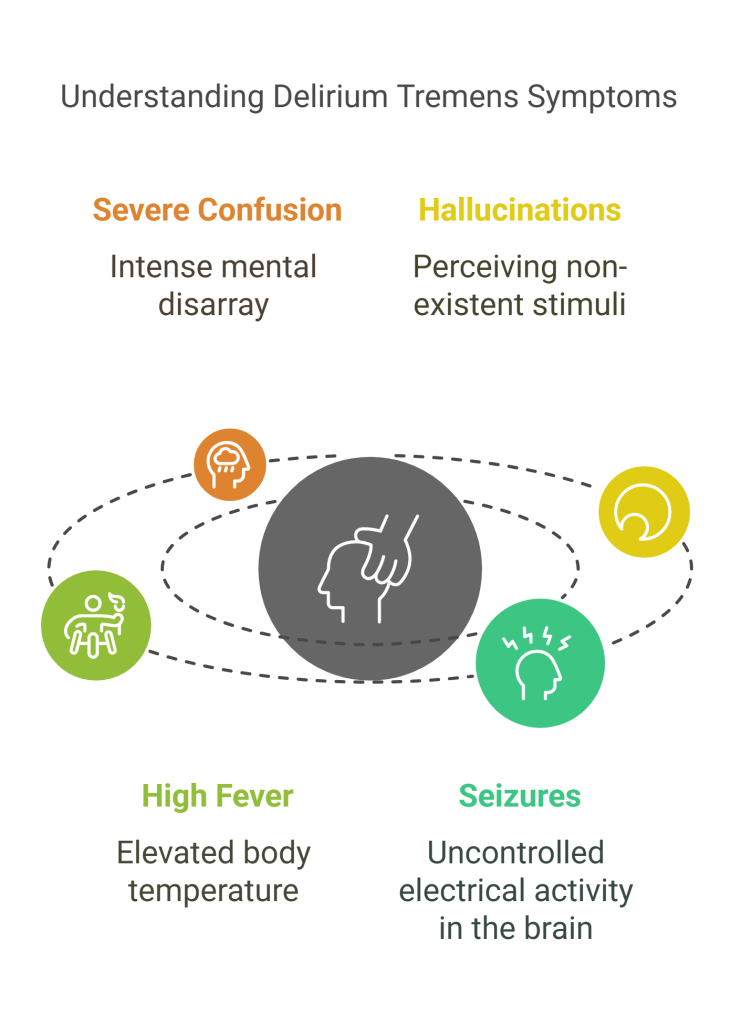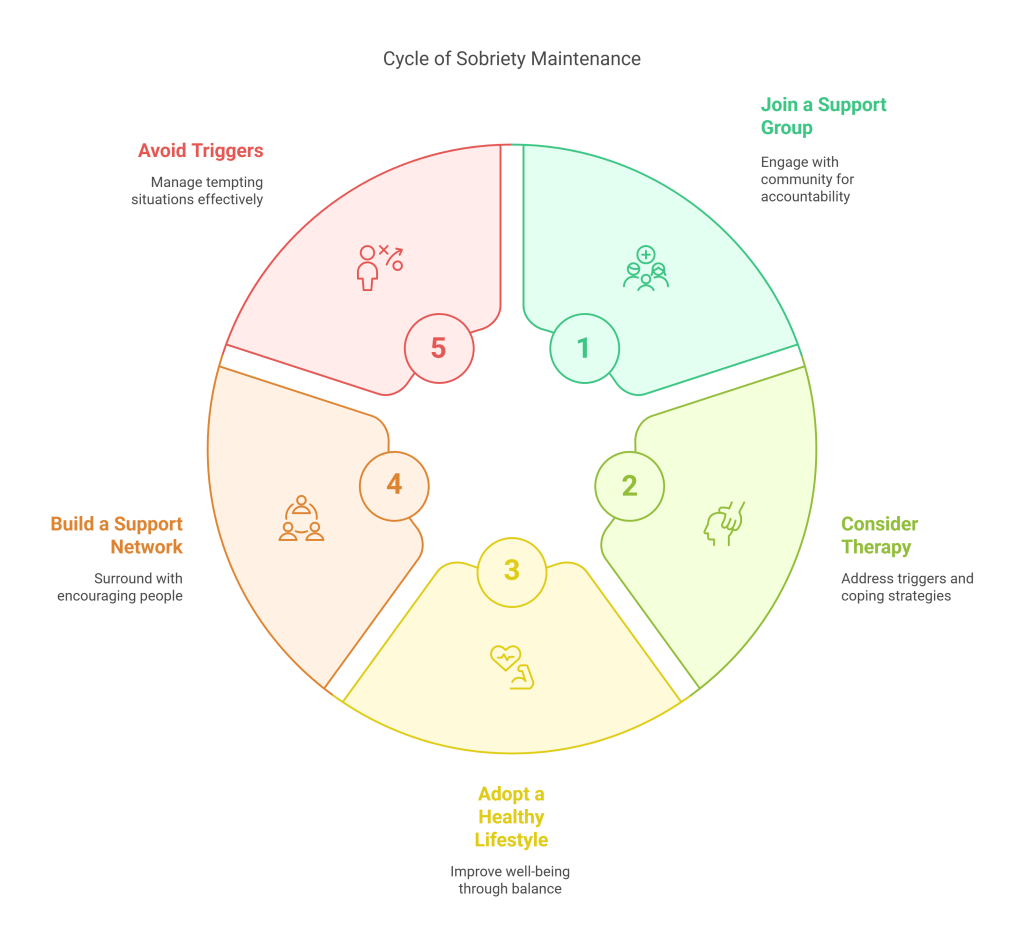Understanding Its Effects and Detox Process
Introduction
Alcohol is one of the most commonly used substances in the world. It is a staple in social settings, celebrations, and cultural traditions. While many people consume alcohol responsibly, excessive or long-term use can lead to serious health problems, addiction, and emotional distress.
Understanding alcohol’s impact on the body and mind is crucial, especially for those considering quitting or cutting down. If you or a loved one is struggling with alcohol dependence, detoxing from alcohol is an essential step toward recovery. This guide explores everything you need to know about alcohol, its effects, withdrawal symptoms, and how to detox safely at home.

What is Alcohol?
Alcohol, or ethanol, is a psychoactive substance that affects the central nervous system. It is found in beer, wine, spirits, and other alcoholic beverages. Once consumed, alcohol is absorbed into the bloodstream and affects various body systems, including the brain, liver, heart, and digestive system.
The effects of alcohol vary depending on the amount consumed, individual tolerance, body weight, and overall health. While moderate alcohol use may not pose serious risks for some, excessive drinking can lead to addiction and long-term health complications.

How Alcohol Affects the Body.
Alcohol is a depressant, meaning it slows down brain function and impairs cognitive abilities. Some of its effects are immediate, while others develop over time with prolonged use.
Short-Term Effects of Alcohol
Even a single session of heavy drinking can have significant short-term effects on the body and mind. These effects vary depending on the amount consumed, an individual’s tolerance, and overall health. Some of the most common short-term effects include:
- Impaired Judgment and Decision-Making – Alcohol affects the brain’s frontal lobe, leading to poor decision-making, impulsivity, and risky behaviors such as reckless driving, unsafe sex, or aggression.
- Slurred Speech and Poor Coordination – As alcohol slows down the central nervous system, motor skills and muscle control become impaired, making tasks like walking or even speaking difficult. This significantly increases the risk of falls, injuries, and accidents.
- Memory Loss or Blackouts – Drinking large amounts quickly can lead to blackouts, where a person cannot remember events that happened while intoxicated. This occurs because alcohol disrupts the brain’s ability to form new memories.
Long-Term Effects of Alcohol
If alcohol is consumed regularly over months or years, it can lead to severe health complications, including:
- Liver Damage – Alcohol is processed in the liver, and excessive consumption can cause fatty liver, alcoholic hepatitis, fibrosis, or cirrhosis.
- Heart Disease – Heavy drinking increases the risk of high blood pressure, heart attacks, and strokes.
- Weakened Immune System – Making the body more susceptible to infections.
- Brain Damage – Chronic alcohol use can cause cognitive decline, memory loss, and even dementia.
- Mental Health Issues – Anxiety, depression, and mood disorders are commonly linked to alcohol abuse.
- Increased Cancer Risk – Long-term alcohol use is associated with cancers of the liver, breast, mouth, throat, and esophagus.
Alcohol Dependence and Addiction
Alcohol dependence develops when the body becomes accustomed to alcohol and requires it to function normally. Over time, people may find that they need to drink more to achieve the same effects. This is known as tolerance.
Signs of Alcohol Dependence
Alcohol dependence, also known as Alcohol Use Disorder (AUD), occurs when a person loses control over their drinking habits and develops a physical or psychological reliance on alcohol. Recognizing the signs of alcohol dependence is the first step toward seeking help and making a change.
- Drinking More or Longer Than Intended – You may find yourself consuming larger amounts of alcohol or drinking for extended periods, even when you originally planned to have just one or two drinks.
- Failed Attempts to Cut Down or Quit – Despite wanting to reduce alcohol intake or stop drinking altogether, you struggle to control your consumption or experience multiple unsuccessful attempts to quit.
- Spending Significant Time Drinking or Recovering from Alcohol Use – A large portion of your day is spent drinking, thinking about alcohol, or dealing with hangovers and withdrawal symptoms. Alcohol becomes a priority over other activities and responsibilities.

Alcohol Withdrawal Symptoms
When a person who has been drinking heavily for an extended period suddenly stops, they may experience withdrawal symptoms. These symptoms range from mild to life-threatening, depending on the level of dependence.

Common Alcohol Withdrawal Symptoms:
- Anxiety, irritability, or mood swings
- Nausea, vomiting, and loss of appetite
- Sweating and rapid heartbeat
- Shaking or tremors
- Insomnia and disturbed sleep patterns
- Fatigue and difficulty concentrating


Severe Alcohol Withdrawal Symptoms (Delirium Tremens – DTs)
In extreme cases, alcohol withdrawal can lead to a life-threatening condition called Delirium Tremens (DTs). This condition typically affects individuals with long-term, heavy alcohol dependence who suddenly stop drinking or significantly reduce their alcohol intake. DTs are considered a medical emergency and require immediate professional intervention, as the symptoms can be severe and even fatal if left untreated.
Who is at Risk for Delirium Tremens?
DTs generally occur in people who:
- Have been drinking heavily for several years or consume large quantities of alcohol daily
- Have a history of previous withdrawal complications
- Have undergone multiple alcohol detox attempts
- Have underlying health conditions, especially liver disease, malnutrition, or dehydration
- Suddenly stop drinking without medical supervision
Delirium Tremens typically begins 2 to 4 days after the last drink, but in some cases, it can appear up to a week later. The symptoms often start mild and rapidly escalate if not treated.
Home Alcohol Detox: What You Need to Know
If you are considering detoxing from alcohol at home, it’s crucial to take precautions. Detox can be challenging, and withdrawal symptoms can be unpredictable. A well-planned approach can make the process safer and more manageable.
1. Preparing for Detox
- Set a start date – Choose a time when you can rest and recover.
- Remove alcohol from your home – Reduce temptation and avoid relapse.
- Inform a trusted friend or family member – Having someone check on you can be helpful.
- Plan healthy meals – Proper nutrition supports recovery.
- Stay hydrated – Water, herbal teas, and electrolyte drinks help prevent dehydration.
2. Managing Withdrawal Symptoms at Home
- Drink plenty of fluids – Helps flush toxins and prevent dehydration.
- Eat small, nutritious meals – Helps stabilize blood sugar levels.
- Take vitamins and supplements – B vitamins, magnesium, and zinc support recovery.
- Practice relaxation techniques – Deep breathing, meditation, and light exercise can ease anxiety.
- Get plenty of rest – Sleep is essential for healing.
3. When to Seek Medical Help
While some people can detox safely at home, medical supervision is recommended for those with:
- A history of severe withdrawal symptoms.
- Underlying health conditions like heart disease or diabetes.
- Heavy, long-term alcohol use.
- A history of seizures or hallucinations during withdrawal.
If symptoms worsen or become severe, seek emergency medical care.

Home Alcohol Detox: What You Need to Know
If you are considering detoxing from alcohol at home, it’s crucial to take precautions. Detox can be challenging, and withdrawal symptoms can be unpredictable. A well-planned approach can make the process safer and more manageable.
1. Preparing for Detox
- Set a start date – Choose a time when you can rest and recover.
- Remove alcohol from your home – Reduce temptation and avoid relapse.
- Inform a trusted friend or family member – Having someone check on you can be helpful.
- Plan healthy meals – Proper nutrition supports recovery.
- Stay hydrated – Water, herbal teas, and electrolyte drinks help prevent dehydration.
2. Managing Withdrawal Symptoms at Home
- Drink plenty of fluids – Helps flush toxins and prevent dehydration.
- Eat small, nutritious meals – Helps stabilize blood sugar levels.
- Take vitamins and supplements – B vitamins, magnesium, and zinc support recovery.
- Practice relaxation techniques – Deep breathing, meditation, and light exercise can ease anxiety.
- Get plenty of rest – Sleep is essential for healing.
3. When to Seek Medical Help
While some people can detox safely at home, medical supervision is recommended for those with:
- A history of severe withdrawal symptoms.
- Underlying health conditions like heart disease or diabetes.
- Heavy, long-term alcohol use.
- A history of seizures or hallucinations during withdrawal.
If symptoms worsen or become severe, seek emergency medical care.
Life After Detox: Preventing Relapse

Detox is only the first step in overcoming alcohol dependence. Long-term recovery requires ongoing effort, support, and lifestyle changes.
Steps to Maintain Sobriety:
- Join a Support Group – Programs like Alcoholics Anonymous (AA) provide community and accountability.
- Consider Therapy – Counseling and cognitive behavioral therapy (CBT) help address triggers and coping strategies.
- Adopt a Healthy Lifestyle – Regular exercise, a balanced diet, and stress management can improve overall well-being.
- Build a Support Network – Surround yourself with people who encourage your recovery.
- Avoid Triggers – Identify and manage situations that might tempt you to drink.
Final Thoughts
If you are considering detoxing from alcohol at home, it’s crucial to take precautions. Detox can be challenging, and withdrawal symptoms can be unpredictable. A well-planned approach can make the process safer and more manageable.
1. Preparing for Detox
- Set a start date – Choose a time when you can rest and recover.
- Remove alcohol from your home – Reduce temptation and avoid relapse.
- Inform a trusted friend or family member – Having someone check on you can be helpful.
- Plan healthy meals – Proper nutrition supports recovery.
- Stay hydrated – Water, herbal teas, and electrolyte drinks help prevent dehydration.
2. Managing Withdrawal Symptoms at Home
- Drink plenty of fluids – Helps flush toxins and prevent dehydration.
- Eat small, nutritious meals – Helps stabilize blood sugar levels.
- Take vitamins and supplements – B vitamins, magnesium, and zinc support recovery.
- Practice relaxation techniques – Deep breathing, meditation, and light exercise can ease anxiety.
- Get plenty of rest – Sleep is essential for healing.
3. When to Seek Medical Help
While some people can detox safely at home, medical supervision is recommended for those with:
- A history of severe withdrawal symptoms.
- Underlying health conditions like heart disease or diabetes.
- Heavy, long-term alcohol use.
- A history of seizures or hallucinations during withdrawal.
If symptoms worsen or become severe, seek emergency medical care.

